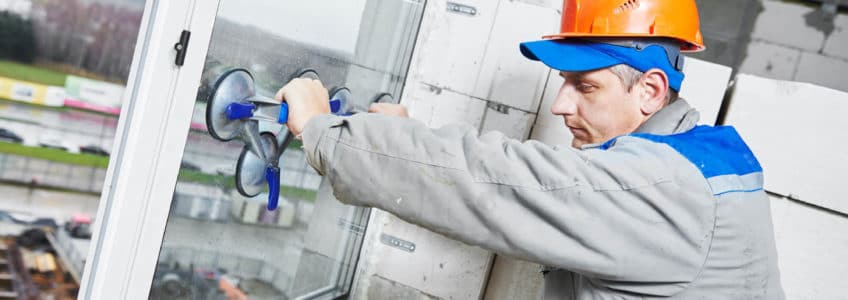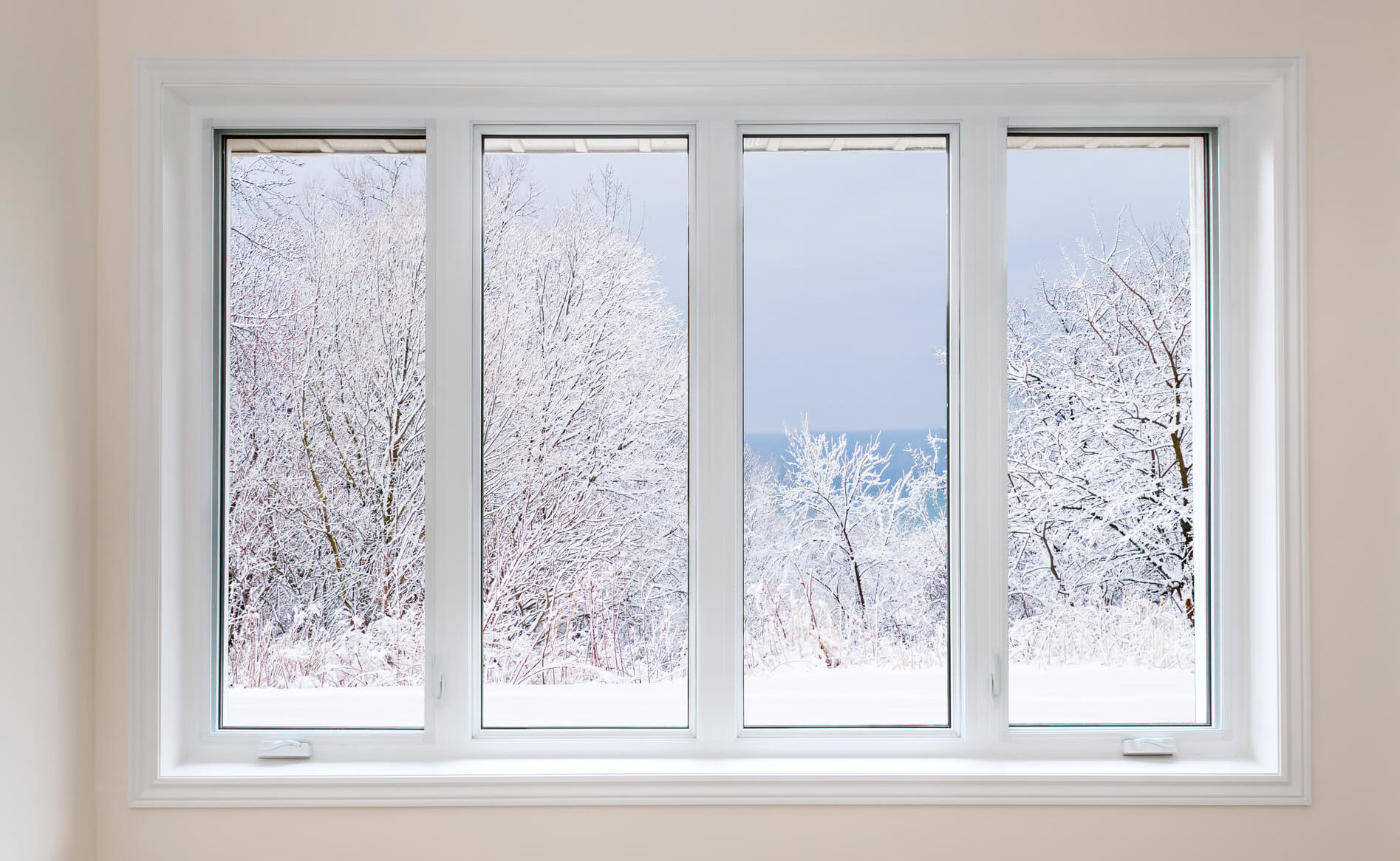
Windows are a critical component of a well-constructed home. They protect your house’s interior from harsh weather and external invaders like birds and bugs. Windows also work hard to keep your home as energy efficient as possible. If you have older, unkempt windows, you’re probably losing an excessive amount of energy. Replacing your existing windows with an energy-efficient option will ultimately save you a significant amount of money over time
Windows 101
Think about all of the homes and buildings you’ve seen in your life; there are probably hundreds of thousands of them. Among those countless residences and business locales, you’d be hard-pressed to find a home without any windows at all. Windows are an essential part of every home, and local laws and regulations require homeowners to install them.
Windows are visually appealing, but also offer protection from the elements and can make your home incredibly energy efficient when installed correctly. There is a wide variety of window styles to select for your next window replacement. New, energy-efficient windows will not only increase your curb appeal significantly but will also save you money.
Different Types of Windows
Finding an attractive window replacement option is challenging when there are so many styles available to homeowners. Whether your home is modern, traditional, contemporary, or anything in between, there is an attractive type of window to suit your style. Some popular, modern window styles include:
- Picture windows
- Bay or bow windows
- Double-hung windows
- Slider windows
- Casement windows
- Clerestory windows
- Awning windows
- Single-hung windows
Each type of window serves different functions. For example, double-hung windows open from both the bottom and the top of the sash to allow extra airflow. Picture, bay, and bow windows are an attractive option that will enable tons of extra natural daylight to flow into your home. Work with a window company in your area to decide on the best style to serve the purposes you require.
Choosing the Right Window Replacement
Installing new windows probably seems like a pretty hefty investment. Homeowners typically put off this task to keep some extra cash in their pockets. However, this is ill-advised, because inadequate windows can cause your home to lose immense amounts of energy, which equates to alarming amounts of money lost as well.
Choosing the Ideal Window for Your Home
Finding the perfect window replacement for your residential or commercial property can seem like a daunting task if you don’t know exactly what functionalities and aesthetics you prefer. You might be inclined to think there are only a few simple styles of windows to choose between. However, it’s essential to be aware of all the unique types of window materials and glass available so that you can choose a window replacement that works best for you.
Window Materials
- Wood
- Vinyl
- Aluminum
- Wood-clad
- Fiberglass
- Composite
Glass Types
- Float glass
- Safety laminated
- Obscured
- Annealed
- Tinted
- Tempered
- Insulated
- Mirror
- Low-E
- Wired
- Heat-strengthened
Certain window materials and glass types work well in specific climates or environments. Ideal options for residential homes are float, tempered, obscured, insulated, and low-E glass. Tinted, mirrored, and wired glass options are a more common option for commercial windows. Working with a trusted window replacement professional will help you determine the best window and glass materials for your home to save you money.
 Ways Your Windows Can Save You Money
Ways Your Windows Can Save You Money
You might believe that replacing your windows has to be a costly expense. This belief leads many homeowners to let window repairs and replacement fall by the wayside. In reality, old, unmaintained windows are actually the main culprit in costing homeowners excessive energy bills. Even the smallest cracks can cause heat and cold air to escape, requiring your HVAC system to work harder to replace the lost energy continuously. Replacing your damaged windows with an energy-efficient window option will actually save you a lot more money than you’d think.
Energy Efficient Window Options
When deciding on the ideal window option for your home, consider which window materials will work best in your local climate. Aluminum and metal-framed windows are made from extremely durable materials and appropriate for tropical settings. However, these window types are not typically very energy efficient. The most common window frame materials that offer increased energy-efficient in a home include vinyl, composite, and fiberglass frames.
Vinyl is probably the most popular type of window frame material found in residential homes. Vinyl windows frames and air-tight and insulated, so you won’t lose energy through them unless installed incorrectly.
Another affordable choice is composite window frames. These frames are manufactured from recycled glass and wood materials, so they’re an incredibly eco-friendly option. Fiberglass window frames are also popular, although much more expensive. Fiberglass window frames offer low thermal conductivity. For this reason, many consider fiberglass the most efficient alternative to help reduce energy loss.
If you notice cracks, dents, or other damage present on your windows, it’s crucial to replace them quickly. Leaving your windows broken, cracked, and damaged is going to cost you more money in the long run than if you just replaced them right away.
How Window Damage Can Happen
When appropriately installed, a window should last between fifteen and twenty years. Some vinyl windows are known to last upwards of 25 years. However, outside forces can cause severe damages to your windows that are beyond your control. Take time to check your windows thoroughly throughout the year for any indications of damage, like cracks, dents, mold, mildew, or a wholly shattered pane. Understanding how windows can become worn or broken is essential if you own a home.
Climate
The climate where your home is located plays a crucial role in affecting your windows’ durability and longevity. Different environments can often have excessive precipitation or temperature fluctuations that impact your window’s stability.
Temperature
In locales where temperatures are known to fluctuate significantly, cracks can easily form on your window’s pane. Both the outside and inside temperatures impact the integrity of your windows. When you fill a glass bowl with ice-cold water immediately after it’s been scalding hot, it will likely crack or shatter completely. Windows work in precisely the same manner. On unseasonably cold days, cranking up the heat to its highest setting may result in small cracks near the frame’s corners.
Two commonly found cracks in windows are stress and pressure cracks. You can tell them apart in the following ways:
Stress Cracks:
These types of cracks typically form slowly around the edges of the pane near the window frame. If left untreated, pressure cracks will grow into a more extensive network of fractures before shattering.
Pressure Cracks:
Pressure cracks are most commonly found on double-paned or insulated glass windows. If you notice an hourglass-shaped slice across your windowpane, it’s likely a pressure crack and needs immediate replacement.
Weather Events
Another way your windows can quickly become damaged is during severe weather events like intense rainstorms, hail, hurricanes, gale-force winds, and more. Things like tree branches or hail chunks can cause dents or cracks in your window. Storms also leave behind moisture, so if your window is installed incorrectly, you might experience mold, mildew, or other rot around your windows.
Physical Force
It’s fun to watch your children play from the comfort of your home’s interior. However, sometimes a softball or other object can come flying seemingly out of nowhere and hit your window. Windows impacted by physical force typically incur severe damage like shattering. This kind of damage usually requires a total window replacement.
Age
Many homes in America have ancient, worn-out windows. Although windows are one part of a house that can last incredibly long, they still need replacement after a certain amount of time. Call a local window installation company and see if your older home requires window damage repair or replacement now.
Annual Window Maintenance
You can save a significant amount of money when you replace your windows after damage or age wears them down. However, your windows won’t maintain their energy efficiency if you don’t provide adequate seasonal window maintenance. Check your windows for signs of damage and wear during all seasons, so you can continue to save money throughout the year.
Fall and Winter Window Maintenance
Fall and winter are when your windows typically withstand the harshest weather conditions. Prep for the cold by taking a few precautions before the severe winter weather hits. Seal your windows to keep the chilled air out while keeping warm, heated air inside. Sealing your windows in the winter will help save a fortune on your heating bill.
Spring Window Maintenance
As the winter thaws out and warmer, sunnier spring days become more commonplace, take time to clean your windows of dirt, debris, and streaking. Little bits of debris left behind from the winter will impact your window’s integrity. A broken window is a costly item to replace, so keep them clean throughout the year to avoid unexpected expenses.
Summer Window Maintenance
Summer is a time for relaxing in the warm weather. However, it’s also a season where windows can be subject to physical damage from children playing outside or unexpected summer thunderstorms. Run through a summer window maintenance checklist to ensure your windows are working correctly and don’t have any damage to them:
- Check weather stripping for any deterioration that leads to increased energy loss. Replace cracked or dry strips right away.
- Inspect window caulking for wear, which can allow unwanted cold air into your home.
- Check that all windows operate correctly; this is especially important for fire safety.
- Ensure there is no damage to window panes or frames. If there is, replace your windows before the weather gets too cold.
Saving Money Starts With Window Maintenance
There is a vast array of window options available to help increase your home’s energy efficiency. Choosing the right frame and glass materials for your next window replacement will reduce energy consumption and stop unwanted cold air from entering your home in the winter.
While replacing your old, worn windows is a fantastic first step to take to reach maximum energy efficiency in your home, the real savings start with window maintenance. Disregarding damage to your windows and ignoring necessary maintenance might lead to even more costly expenses over time. You can avoid incurring unnecessary and expensive repairs by monitoring and maintaining your windows throughout the year.
If you notice any damage or feel that it might be time to upgrade your home’s existing windows, contact an experienced window installation company to come to assess your home’s windows. Work together to decide on the best materials and window styles to both suits your home’s style and save you significant amounts of money over time.[/vc_column_text][/vc_column][/vc_row]

 Ways Your Windows Can Save You Money
Ways Your Windows Can Save You Money